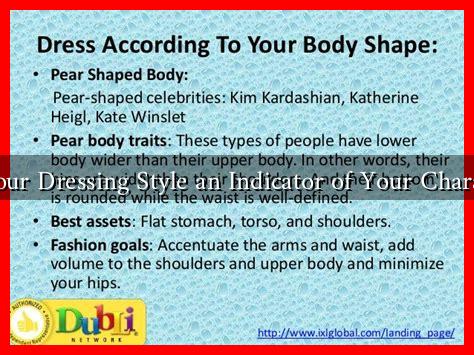-
Table of Contents
Is Your Dressing Style an Indicator of Your Character?
In a world where first impressions are often formed in mere seconds, the way we dress can speak volumes about our character. From the colors we choose to the styles we adopt, our clothing can reflect our personality, values, and even our social status. But how much can we really infer about a person’s character based on their dressing style? This article delves into the intricate relationship between fashion choices and personality traits, supported by research and real-world examples.
The Psychology of Dressing
Clothing is not just a means of protection against the elements; it is a form of self-expression. Psychologists have long studied the connection between clothing and personality. According to a study published in the journal *Social Psychological and Personality Science*, people can accurately judge others’ personality traits based on their clothing style. The study found that observers could assess traits such as openness, conscientiousness, and extraversion simply by looking at someone’s outfit.
What Your Wardrobe Says About You
Different styles of dressing can indicate various personality traits. Here are some common styles and what they might suggest about an individual:
- Casual Wear: Individuals who prefer casual clothing, such as jeans and t-shirts, may be seen as laid-back and approachable. This style often reflects a relaxed attitude towards life.
- Formal Attire: Those who dress in formal wear, such as suits and dresses, may be perceived as ambitious and professional. This style often indicates a desire for respect and authority.
- Trendy Fashion: People who keep up with the latest fashion trends may be viewed as creative and open to new experiences. They often value aesthetics and self-expression.
- Vintage or Retro Styles: A preference for vintage clothing can suggest a nostalgic personality, often indicating a deep appreciation for history and culture.
Case Studies and Real-World Examples
Several case studies illustrate how dressing style can influence perceptions of character. For instance, a 2015 study by the University of California found that individuals who dressed in business attire were perceived as more competent and trustworthy compared to those in casual clothing. This phenomenon is often referred to as the “power dressing” effect, where clothing can enhance one’s authority in professional settings.
Another example can be seen in the fashion choices of public figures. Consider the late Princess Diana, whose elegant and sophisticated style not only reflected her royal status but also her compassionate character. Her choice of clothing often conveyed messages of empathy and approachability, which endeared her to the public.
The Role of Cultural Context
It’s essential to recognize that dressing styles are also influenced by cultural contexts. What may be considered professional attire in one culture could be viewed as inappropriate in another. For example, in many Western cultures, a suit is synonymous with professionalism, while in some Asian cultures, traditional attire may hold more significance in formal settings.
Moreover, socioeconomic factors play a crucial role in shaping one’s dressing style. Individuals from affluent backgrounds may have access to high-end fashion brands, while those from lower socioeconomic backgrounds may prioritize practicality over style. This disparity can lead to misconceptions about character based solely on appearance.
Conclusion: The Complex Relationship Between Style and Character
While dressing style can provide insights into a person’s character, it is crucial to approach these judgments with caution. Clothing is just one aspect of a person’s identity and can be influenced by various factors, including culture, socioeconomic status, and personal circumstances. Therefore, while your dressing style may offer clues about your character, it should not be the sole basis for forming opinions about others.
In summary, our clothing choices can indeed reflect aspects of our personality and character. However, it is essential to consider the broader context and avoid making hasty judgments based solely on appearance. As the saying goes, “Don’t judge a book by its cover”—a reminder that true character often lies beneath the surface.
For further reading on the psychology of fashion and its impact on perception, you can explore resources like the Psychology Today.

